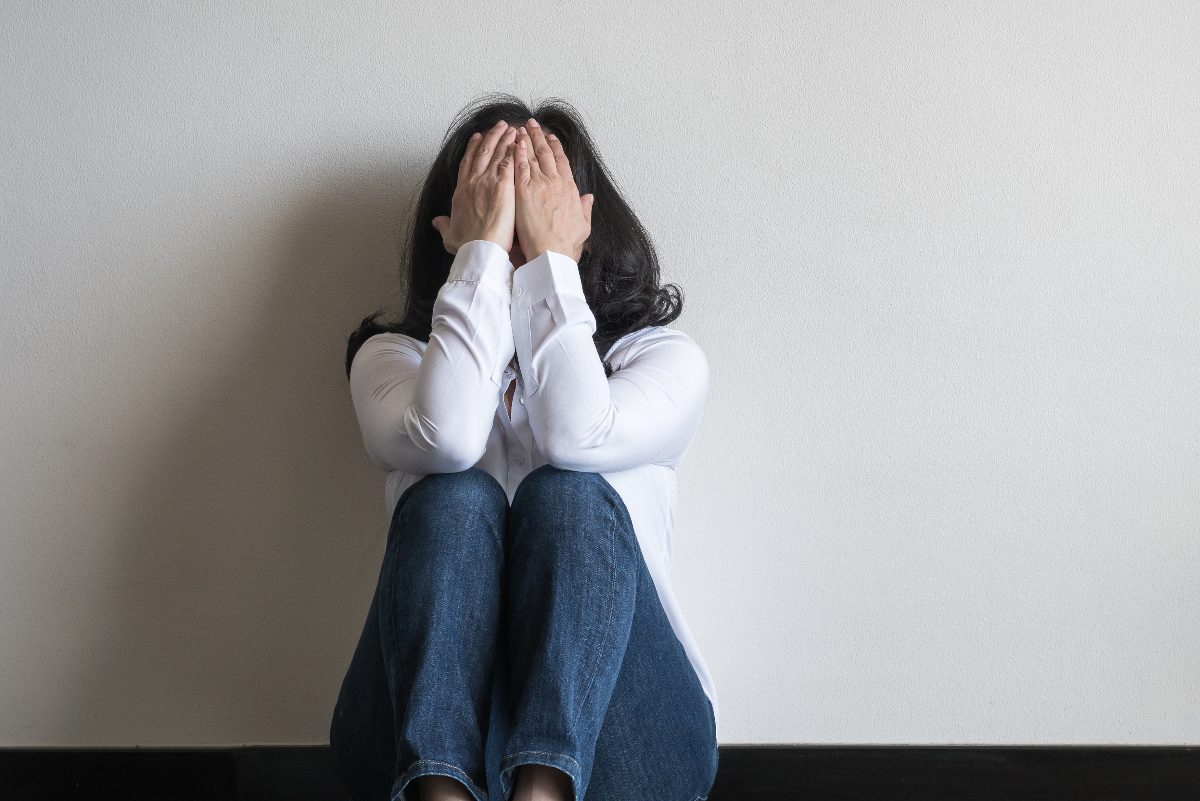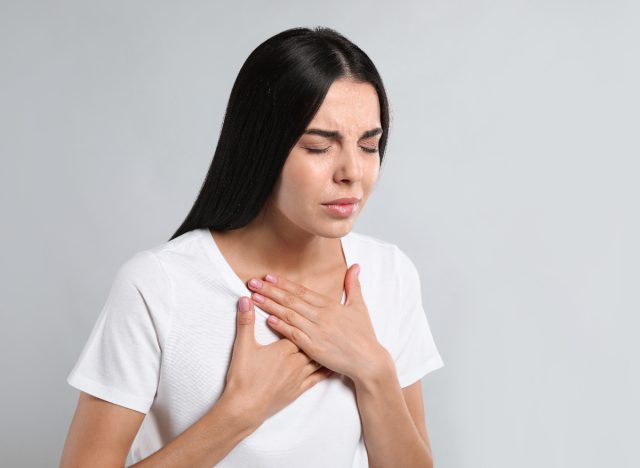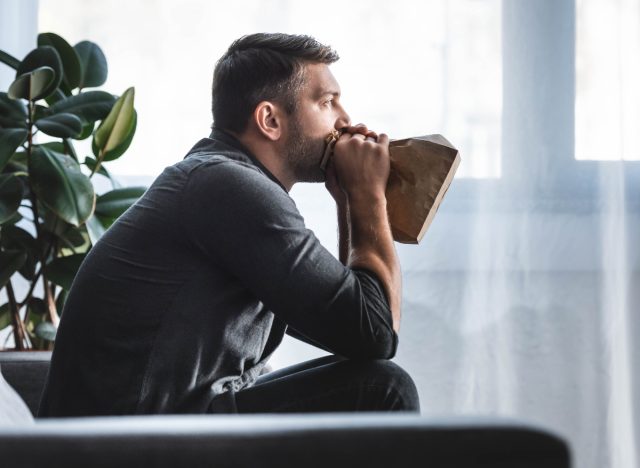Early Warning Signs Of A Panic Attack To Look Out For, Expert Says

If you’ve ever experienced a panic attack before, you know it can be quite terrifying. Although panic attacks are not life-threatening, persistent ones can drastically impact the quality of life you live. We spoke to Dr. Mike Bohl, MD, MPH, ALM, a member of the Eat This, Not That! Medical Expert Board to understand the early warning signs of a panic attack you should be aware of. Read on to learn more, and next, be sure to check out The 6 Best Exercises for Strong and Toned Arms in 2022, Trainer Says
A panic attack is when you suddenly experience extreme fright

According to Mayo Clinic, a panic attack is when you’re suddenly overcome by extreme fright. You may feel as though you’re experiencing a heart attack—or even death. Fortunately, a good number of individuals only have one or two of these horrifying episodes in an entire lifetime. Others, however, experience them quite often. They even live in fear of another panic attack occurring down the road, and this is referred to as panic disorder. The good news is it’s something that’s treatable with proper care. But first, you need to recognize some of the early warning signs of a panic attack.
Symptoms can include tightness in your chest, shaking, numbness, extreme anxiety, and more

Dr. Bohl tells us it’s not uncommon to not have any sort of warning signs of a panic attack, as they come on very suddenly. They do, however, include some physical symptoms, which may give you an inkling that something’s happening or will happen shortly. Dr. Bohl explains, “Typical physical symptoms of a panic attack include a racing or pounding heartbeat, shortness of breath or chest tightness, sweating and/or chills, shaking, upset stomach/nausea, dizziness, and numbness or tingling.” He adds, “You may also feel ‘detached’ from the world or have a strong feeling of impending doom or extreme levels of anxiety.”
Related: Why Do I Keep Getting UTIs? New Study Reveals One Shocking Cause
These episodes are usually triggered by high stress levels, although other things can bring them on as well

To help you have a better understanding of what causes a panic attack, Dr. Bohl tells us they are usually triggered by high stress levels, although there are other things that can bring one on as well. For example, substance abuse and caffeine can spark an attack, and some can be prompted as a side effect of certain medications. And that’s not all—he adds, “Major life events, like the death of a loved one or trauma, can also make someone more susceptible to experiencing a panic attack, as can differences in genetics or the presence of medical conditions like panic disorder, PTSD, or hyperthyroidism.”
Related: “Unhealthy” Exercise Habits That Can Actually Shorten Your Life, Expert Says
What to do if you think you’re having a panic attack

If you do feel you’re experiencing a panic attack, it can be really scary. When you’re in the moment, it’s possible to feel “unsure of what to do” and “powerless,” Dr. Bohl says. The most critical step in working through a panic attack is to actually acknowledge that it’s occurring. Dr. Bohl instructs, “Tell yourself that you know you’re having a panic attack, that it will pass, and that you will be okay. While you’re doing this, you can practice mindfulness techniques, like deep breathing, focusing on an object, or focusing on different parts of your body and relaxing the muscles one by one.”
Many people have panic attacks, and we hope they are not often. If you find that you seem to be prone to having them, it’s possible you have the panic disorder that we mentioned previously. If you get to the point where you regularly experience panic attacks and consistently live in fear another panic attack is around the corner, or you seem to have anxiety that’s out of your control, it’s the right time to reach out to a medical professional for help. “Luckily, therapy and medications can help reduce the risk of experiencing panic attacks in the future, and counseling can help you learn the skills necessary to manage panic attacks when you do get them,” Dr. Bohl explains.









